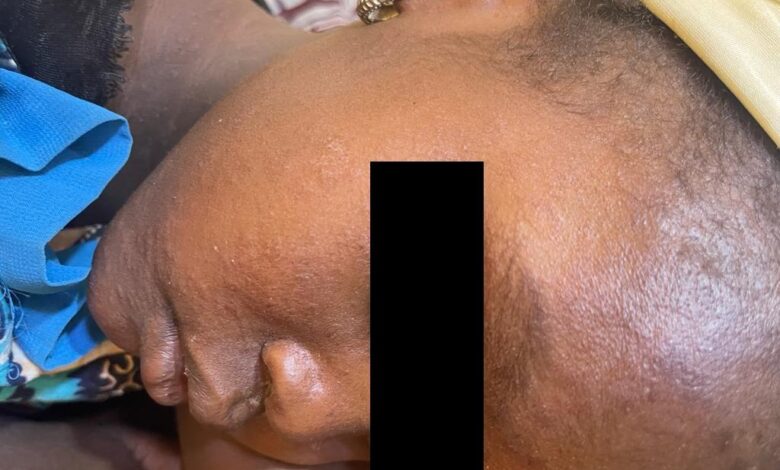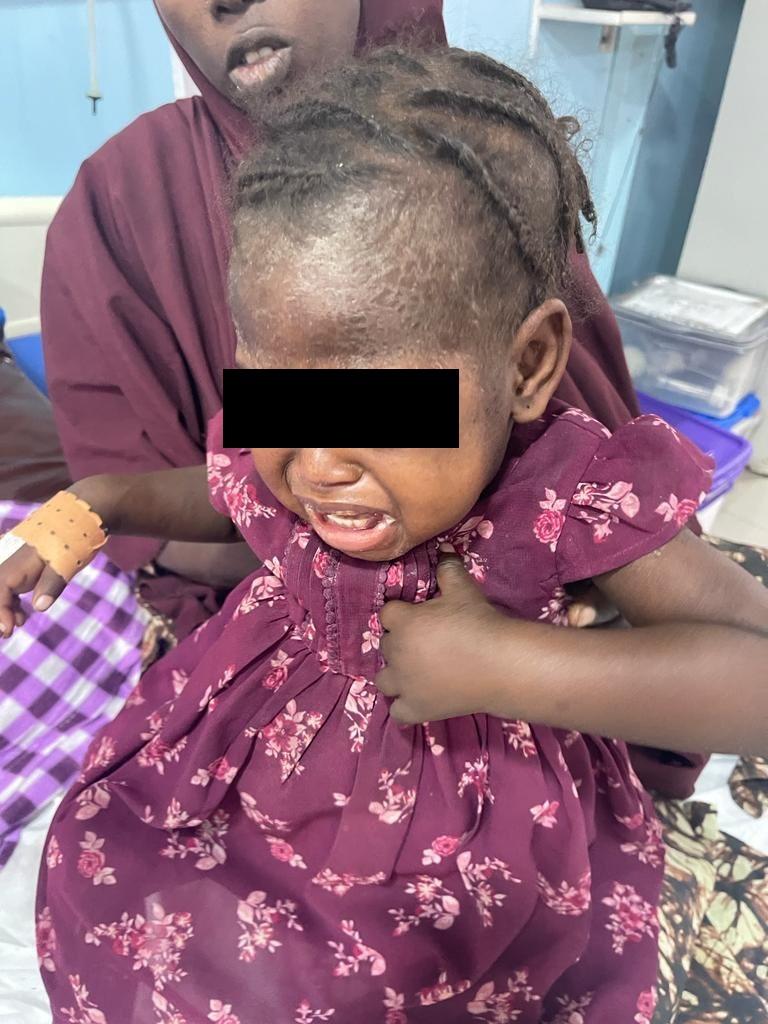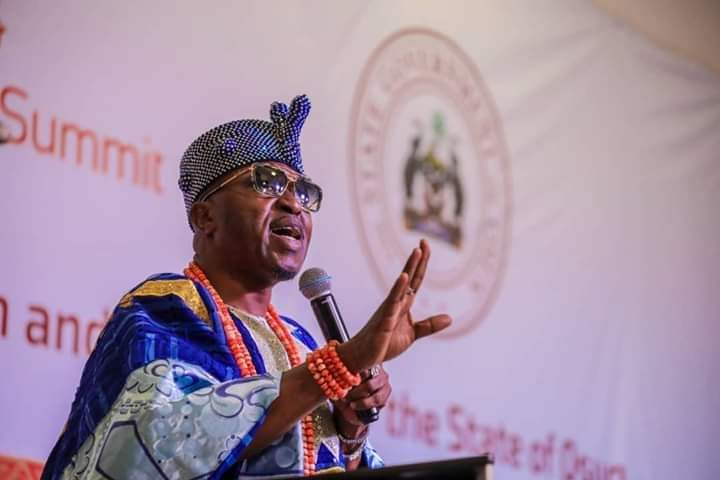HEALTH: Urgent call for expanded measles-rubella vaccination campaign in Nigeria

By BASHIR ADEFAKA
“Measles is a highly contagious viral disease and it has been listed as an important cause of death amongst young children globally. It is usually associated with cough, fever and other symptoms but a characteristic rash stands it out.”
Stakeholders in the health sector have been called upon to intensify and extend the measles-rubella vaccination campaign to grassroots communities.
The Head of Mission for the Advocacy Project at the Centre for Well-Being and Integrated Nutrition Solutions (C-WINS), Dr. Mahmud Zubairu, cautioned in a statement that low vaccination coverage could lead to increased deaths and disabilities, particularly among children.

The Centre for Well-Being and Integrated Nutrition Solutions recalled that in May 2024 measles outbreak killed 24 people in Adamawa State.
Quoting media reports, the Centre stressed that the measles outbreak affected two local government areas (LGAs), where nearly 200 suspected cases were identified.
It stated, “Measles cases have been reported nationwide, with many confirmed cases in Borno State, which has been battling insurgency for more than 10 years. There have been two large measles outbreaks in the North-West and North-East zones between 2012 and 2021.
“Measles is a highly contagious viral disease and it has been listed as an important cause of death amongst young children globally. It is usually associated with cough, fever and other symptoms but a characteristic rash stands it out.”
The Head of Mission for the Advocacy Project *at the* Centre for Well-Being and Integrated Nutrition Solutions (C-WINS), Dr Mahmud Zubairu, emphasized that if not properly managed, measles and rubella, can lead to serious complications that may lead to death and disabilities.
The Centre, however, noted that adequate vaccination could stem the spread of the diseases and prevent deaths and disabilities.
The statement noted that the measles vaccine has been available since 1963 and has demonstrated high efficacy, reducing measles cases by up to 99% compared to the pre-vaccine era. It also highlighted a significant decline in major epidemics worldwide, which, before the vaccine’s introduction, occurred every two to three years and caused an estimated 2.6 million deaths annually.
“Similarly, Rubella is a highly contagious viral disease that spreads when an infected person coughs or sneezes. It is also associated with mild fever and rash in infected children. If a woman is infected with the rubella virus during early pregnancy, there is a 90% chance of passing the virus to the unborn child and this can result in miscarriage, fetal death, still birth or giving birth to a child with congenital malformations, known as congenital rubella syndrome (CRS).
“Like measles, vaccination is the most effective way to prevent rubella and its spread. The rubella vaccine is safe and helps the body build immunity against the virus. While the measles vaccine has been part of the country’s immunization schedule since the launch of the Expanded Program on Immunization—now the Essential Program on Immunization—in 1979, the rubella vaccine has not been included in public health facilities’ routine immunization schedule.”
According to the Centre, scientists have made significant progress in combining multiple vaccine antigens, reducing the number of injections required for children.
The Centre stressed the importance of widespread immunisation to achieve herd immunity.
Emphasizing the need for widespread immunization, the Centre stated, “For vaccines to effectively prevent diseases, communities must achieve herd immunity. This ensures that even unvaccinated children are protected when a disease is introduced, thanks to the immunity of vaccinated individuals. However, this level of protection can only be achieved with very high vaccination coverage.”
The Centre further highlighted that, like measles, rubella continues to have devastating health effects in Nigeria, leading to deaths and lifelong birth defects in children.
“The low measles-rubella vaccination coverage in Nigeria underscores the urgent need for effective communication strategies that reach all parts of the country and raise awareness about the importance of vaccination” it stated.
“It therefore called for nationwide campaigns focused on strengthening routine immunization services, ensuring an effective rollout of the measles-rubella vaccine, and increasing vaccination coverage to ultimately eliminate these deadly diseases.
Measles remains one of the most contagious viral diseases and a leading cause of death among young children worldwide, despite the availability of a safe and effective vaccine, the Centre for Well-Being and Integrated Nutrition Solutions (C-WINS) has emphasized.
Rubella, also known as German measles, is another highly contagious viral infection that primarily affects children and young adults. The Centre warned that rubella is the leading vaccine-preventable cause of birth defects, with infections during pregnancy potentially resulting in fetal death or congenital defects, collectively known as Congenital Rubella Syndrome (CRS).
“Measles and rubella are distinct diseases, both causing rashes but triggered by different viruses. This distinction should be a key message in vaccination campaigns to ensure clarity and encourage wider immunization coverage,” the Centre stated.
The Centre also noted that the World Health Organization (WHO) has repeatedly stressed the need for high vaccine coverage to curb the spread of measles and rubella. However, factors such as widespread insecurity and inadequate awareness have significantly disrupted vaccination programs in Nigeria.
According to the WHO, global measles cases surged by 20% in 2023, reaching 10.3 million, largely due to insufficient immunization. In the same year, 22 million children worldwide missed their first dose of the measles vaccine. WHO data also revealed that only 83% of children received their first dose, while just 74% received the second dose, falling short of the 95% coverage target needed to prevent outbreaks.
WHO Director-General Dr. Tedros Adhanom Ghebreyesus highlighted that the measles vaccine has saved more lives than any other vaccine in the past 50 years. He urged nations to invest in immunization efforts to protect the most vulnerable populations.
The WHO also reported that nearly half of all large measles outbreaks occurred in Africa, with an estimated 107,500 measles-related deaths in 2023—mostly among children under five. Even survivors often suffer lifelong complications such as blindness, pneumonia, and encephalitis (brain swelling and potential brain damage).
While at least one country in every WHO region has eliminated measles, Africa remains the exception. The WHO has called for urgent and targeted vaccination efforts to ensure all children receive two doses of the measles vaccine.
A research article titled “Combating Recurrent Measles Outbreaks in Nigeria: Short-Term and Long-Term Strategies” (Olufadewa et al., Journal of Medicine, Surgery, and Public Health, August 2024) identified low vaccination coverage, vaccine hesitancy, inadequate healthcare infrastructure, and socioeconomic barriers as the major drivers of measles outbreaks in Nigeria.
The Centre stressed that vaccination campaigns must reinforce the message that both measles and rubella are preventable through immunization and that these diseases can lead to death or lifelong complications such as blindness and pneumonia.
“The campaign must target caregivers, mothers, fathers, religious leaders, and traditional rulers, ensuring they understand that measles and rubella vaccines are safe, free, and effective. The consequences of non-vaccination are severe,” the Centre advised.
The Centre also emphasized the importance of health education on early detection and prompt reporting of measles and rubella cases, urging communities to ensure affected children receive immediate medical care at health facilities.
At a January 2024 meeting in Abuja, Dr. Lukman Ismaila, an epidemiologist from the Nigeria Centre for Disease Control (NCDC), revealed that Nigeria records over 10,000 measles cases annually, underscoring the urgent need for improved vaccination coverage.
Research cited by C-WINS showed that global measles vaccination coverage stood at 83% for the first dose and 74% for the second dose in 2023. However, Nigeria’s coverage has remained between 50% and 60% in recent years, with significant regional disparities.
For instance, according to the National Demographic Health Survey (NDHS) 2023/2024, measles vaccine coverage in the North-West is considerably lower than in the South-South and South-East regions. In 2018, the coverage rate was 43.3% in the North-East compared to 75.5% in the South-West. This inadequate coverage remains a major obstacle to achieving herd immunity and effectively controlling measles outbreaks.
“These alarmingly low figures highlight the urgent need for a strong, nationwide media campaign that will reach all corners of the country, especially the North,” the Centre stated.
To address vaccine hesitancy, the Centre emphasized the need for a multi-faceted advocacy campaign that tackles cultural, social, and behavioral barriers to immunization.
Key strategies include: Radio, television, and social media outreach to educate the public.
“Engaging religious and traditional leaders as advocates for vaccination.
*Furthermore, while promoting measles vaccination, the rubella component must not be overlooked. The Centre warned that rubella infections during pregnancy can cause severe birth defects, including hearing and vision loss, heart abnormalities, and other lifelong disabilities.
“By prioritizing awareness, emphasizing vaccine safety and effectiveness, and using communication tools that reach the grassroots, Nigeria can achieve the 95% vaccination coverage needed to eliminate measles and rubella,” the Centre concluded.








